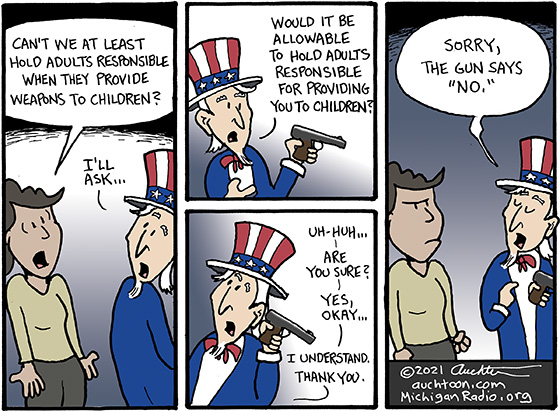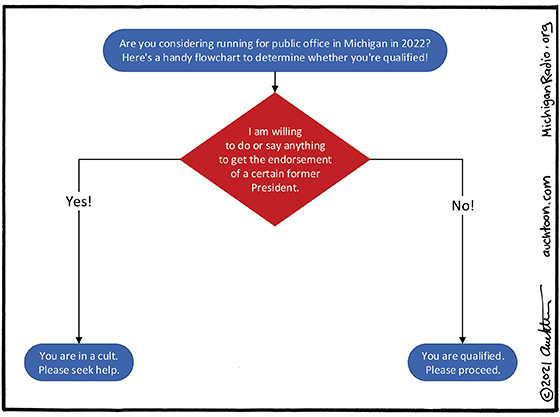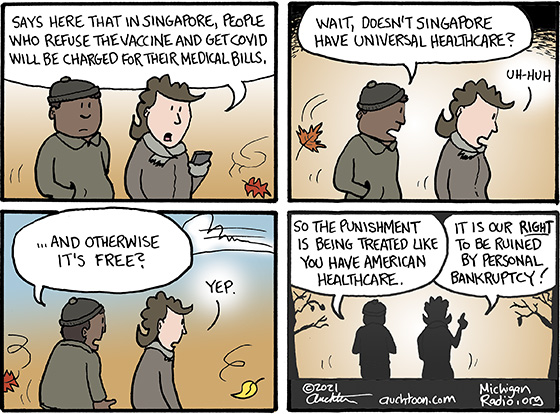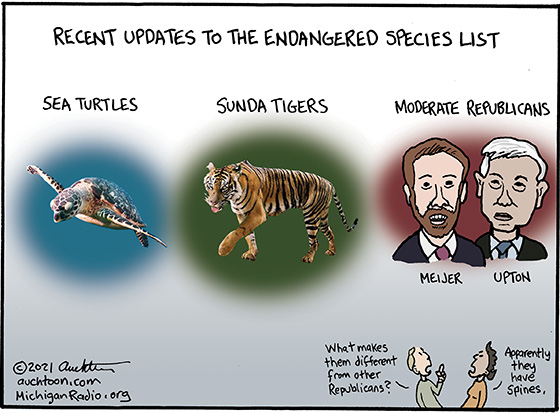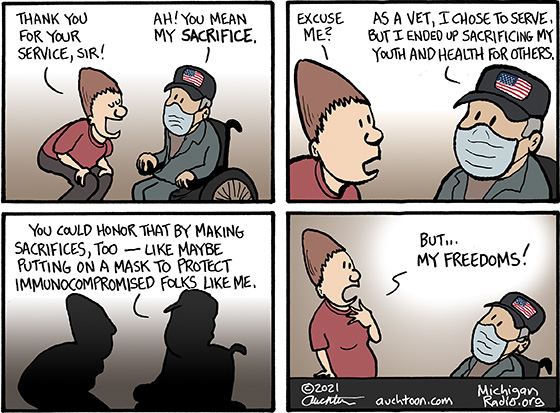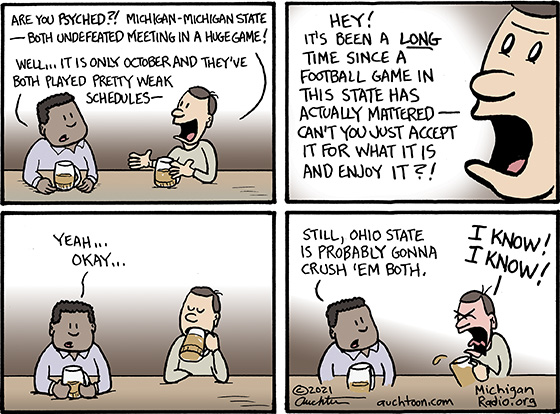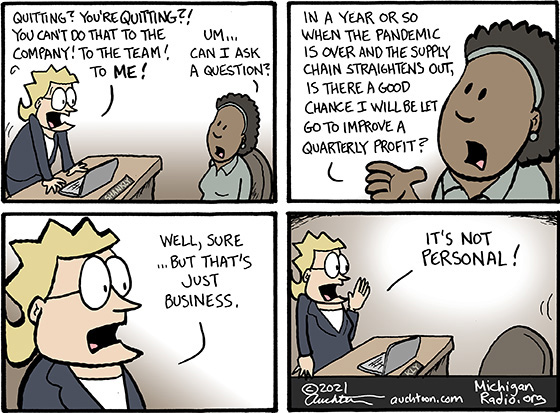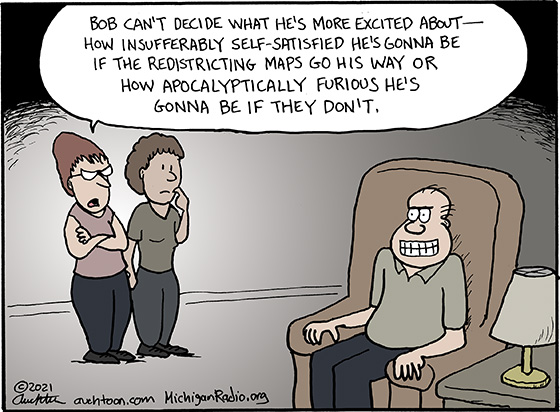The Redistricting Commission Understands…or Do They?
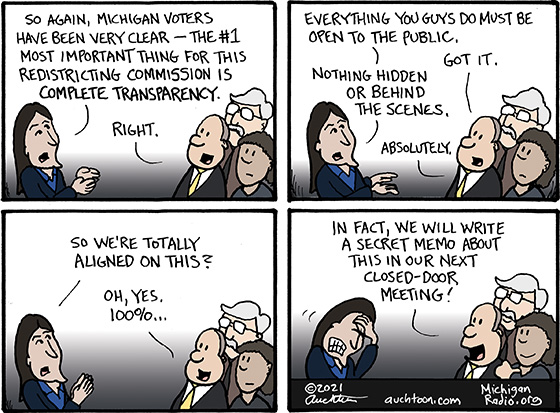
“Monty Python and the Holy Grail” contains so many all-time best comedic scenes — the Black Knight (“Just a flesh wound.”), the Coconut Debate (“An African or European swallow?”), the Killer Rabbit (“And we’d better not risk another frontal assault — that rabbit’s dynamite!”). One of the most overlooked (and under appreciated, in my opinion) is the Guarding the Room scene.
If you don’t remember, here it is:
It wasn’t until I had completed this week’s cartoon that I realized how closely it tracks with that scene. It seems the one consistent thing that Michigan citizens asked of the newly formed commission to determine Michigan congressional districts was transparency. And yet, here we are with several news organizations suing the commission because of their secret memos and closed-door meetings. The Michigan Supreme Court could possibly make a ruling on this by the time this is published.
Of course, if you look closer, there are reasons for this — relatively standard “we are in a position of power and our lawyers advise us to not tell you everything” sorts of reasons. So, I’m not feeling all high and mighty for calling them out. (And neither should Governor Whitmer and the state legislature, considering their own issues with similar shenanigans, such as stonewalling freedom of information requests.) But it is ridiculous. Not as funny as Monty Python, but nearly as ridiculous.
